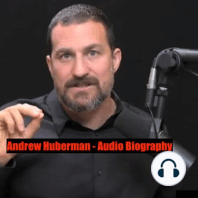5 min listen
Huberman on Praising Kids
ratings:
Length:
6 minutes
Released:
Mar 14, 2024
Format:
Podcast episode
Description
Of course, parents want to shower their kids with praise, highlighting their intelligence, talent, and athletic prowess. However, research suggests that simply labeling children as gifted and talented may not be the most effective approach. In fact, certain types of praise can inadvertently hinder a child's performance. Andrew Huberman, a professor of neurobiology and ophthalmology at Stanford School of Medicine and host of the Huberman Lab podcast, explores the intricate connection between performance, grit, and the praise we receive and give ourselves. He also delves into the concept of a growth mindset and whether it can be learned and adopted. "It turns out that the kind of praise or feedback that we receive that attaches our identity to performance can actually undermine our performance," Huberman explains in the podcast episode focused on enhancing performance. From a young age, we often internalize beliefs about our strengths and weaknesses, Huberman notes. For instance, I've consistently told myself (and continue to do so) that I'm terrible at drawing—I could never create a proportional figure in art class. Conversely, I used to tell myself (but no longer do) that I was skilled at playing the piano, learning covers of popular songs in my spare time. "We tend to decide if we are good or bad at things, and we tend to integrate those beliefs with our identity to varying degrees, depending on whether we're professionals, amateurs, or how much we engage in an activity," Huberman says. Interestingly, being praised for our talent or intelligence in a specific area can actually limit our potential. As cliché as it may sound, emphasizing and commending the journey rather than the destination is the key to optimizing our performance. As renowned author Glennon Doyle's podcast title suggests, we can indeed do hard things. How to praise your child the 'right' way Huberman references the work of Carol Dweck, a psychologist at Stanford University and author of "Mindset: How You Can Fulfill Your Potential." Dweck's 1998 research laid the groundwork for understanding the importance of effort-based praise over intelligence-based praise in improving performance. Children who were told they were great or smart after completing a task tended to gravitate toward easier activities that bolstered their sense of achievement. "They are likely to go with the least amount of challenge so that they can continue to receive that praise or feedback," Huberman explains. On the other hand, children who were praised for their effort and the process of diligently working on a problem were more inclined to seek out increasingly challenging tasks. Moreover, those praised for their effort actively sought out more challenges in general, aiming to capitalize on and enhance their effort. Paradoxically, telling someone they are a great athlete may lead them to play conservatively, as being good is tied to their identity, and they fear the consequences of losing. "If you're a parent or teacher, you have to be very careful about giving feedback to a child that is attached to their identity around an endeavor, especially if they're performing well at that endeavor," Huberman cautions. Praise with verbs Huberman breaks it down into simple terms: ditch the nouns. "If you attach effort verbs to why you got good at something, as well as why you are not good at something, then there's only room for improvement," he states in the episode. Teach a growth mindset Emphasizing effort aligns with adopting a growth mindset—the belief that we can continuously find new ways to optimize performance and tackle challenges. Our identities are not fixed, Huberman asserts. "Growth mindset is really a way of connecting motivation to cognition," Huberman says, adding that it helps individuals bounce back from setbacks and transform frustration into action. As simple as it may seem, clearly outlining the difference between a growth mindset and a fixed mindset is an excellent starting p
Released:
Mar 14, 2024
Format:
Podcast episode
Titles in the series (12)
Huberman gets into Yerba: - In 2016, Nicolas Beaupré embarked on a transformative journey to Chile with the initial goal of honing his Spanish skills and working as a ski instructor. However, this trip took an unexpected turn when he discovered his love for yerba mate, an... by Andrew Huberman - Audio Biography
